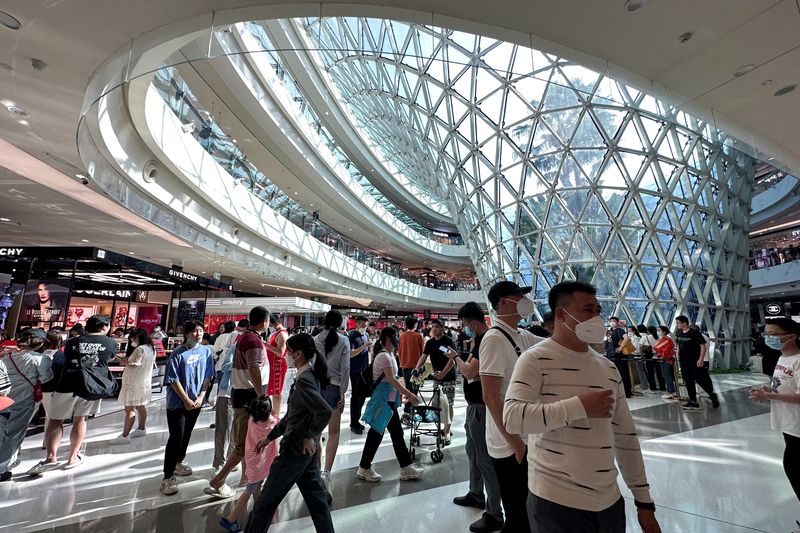BEIJING (Reuters) -Duty-free spending slumped 29.3% last year in China’s island province of Hainan, where global luxury players from LVMH to Kering (EPA:) have set up shop, as a weak economy led to a sharp drop in numbers of domestic visitors.
Shoppers visiting Hainan, known for its glitzy seafront hotels and sandy beaches, spent 30.94 billion yuan ($4.24 billion) on duty-free goods in 2024, customs data showed on Thursday, down from 43.76 billion in 2023.
Their numbers fell 15.9% to 5.683 million, the data showed, from 6.756 million in 2023.
“The depreciation of foreign currencies, such as the Japanese yen, combined with attractive travel policies like visa-free entry in Malaysia, has led many Chinese consumers to seek lower prices abroad,” said Kenneth Chow, principal at consultancy Oliver Wyman.
While retail spending in Hainan is not crucial for China’s economy, the declines deal a blow to foreign luxury brands.
Such brands had counted on a post-pandemic boom that had tripled sales to 43.76 billion yuan in 2023 from 2019, helped by a 2020 increase in purchase limits at Hainan’s 12 duty-free malls.
Major global beauty players such as L’Oreal and Estee Lauder (NYSE:) are also exposed in Hainan, where beauty products made up more than 40% of duty-free sales in 2023.
“A decline in consumer confidence has significantly affected Chinese consumers’ willingness to spend on luxury and discretionary items,” Chow added.
“This is particularly true for prestige beauty products, which have seen considerable downturns.”
Hainan’s 2024 slump also bodes ill for plans to turn the entire island, roughly the size of Belgium, into a duty-free shopping zone in 2025.
That expansion would enable brands to run their own duty-free stores, rather than rely on partnerships with domestic players, such as China Duty Free Group.
There are also hopes that a wholly tax-free Hainan would draw Chinese consumers away from competing foreign duty-free hubs such as Japan, Singapore and South Korea, helping to kickstart consumption in China’s south.
Domestic consumption returned to a lower trajectory, particularly in the second half of 2024, as a wave of “revenge spending” after the enforced frugality of the COVID pandemic faded.
Overall retail sales grew just 3.0% in November on the year, far short of a 4.6% expansion analysts had expected.

Last year, top officials of the ruling Communist Party made a call to “vigorously” boost consumption in 2025 and expand domestic demand “in all directions”.
($1=7.2994 renminbi)
#Trouble #Chinas #shopping #paradise #Hainan #dutyfree #spending #tumbles #Reuters